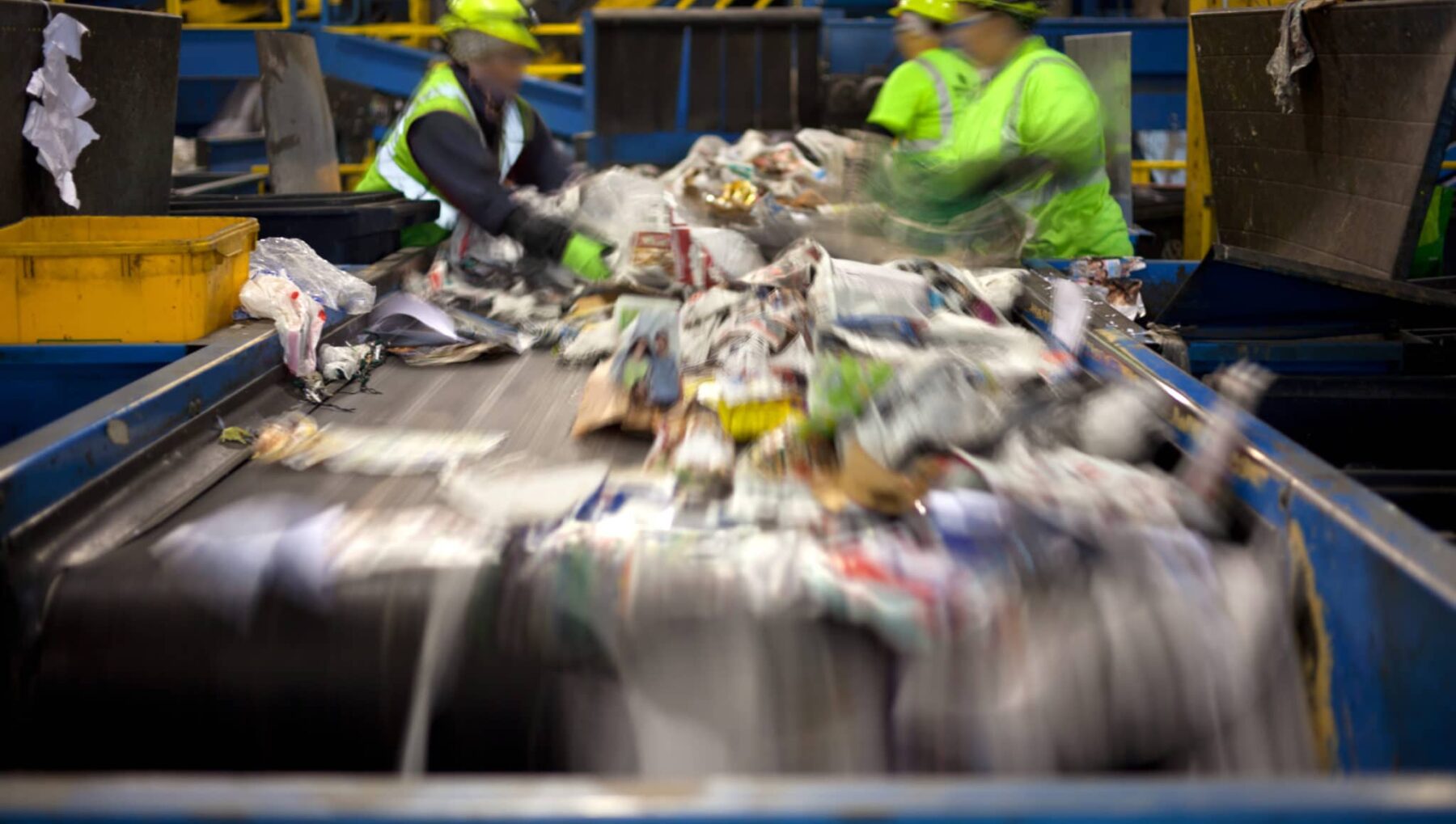Blog
Keep Calm and Recycle On
by Routeware Team • December 19, 2017

If you’re administratively involved in a recycling program you’ve likely come across the terms “China Ban” or “National Sword” at some point over the past year. The program is a Chinese government effort taking aim at imported recyclables. It imposes restrictions on some previously-accepted materials and bans others altogether. This is especially going to affect scrap plastic and mixed paper. While it is not yet known what the full effect on recycling markets will be, there is no doubt that it will have some impact on North America. Indeed, with China responsible for importing over half of the world’s scrap paper and at least a third of its plastic, some changes could be on the horizon.
Those of us involved in the recycling industry can do little about this other than to wait and see what happens in the marketplace. However, as The Recycling Partnership stated in their October webinar, there is a provision within the National Sword we can actually do something about: contamination.
Contamination & the Knowledge Gap
The threshold for allowable contaminants in baled recyclables has been adjusted substantially as part of the program, down from 2% to a meager 0.5%. This will have consequences for recycling programs that export materials to China, and especially communities and businesses that rely on single stream MRFs. However convenient, one of the trade-offs of going single stream is the inevitable “wish-cycling” that takes place at the customer level – recyclers unwittingly throw unacceptable items into the stream which then have to be hand-picked off of a conveyor belt by MRF sorters. In a high volume MRF, belt speeds can move up to 5 ft per second, making it physically impossible to grab every single item that was recycled in error. Some of it inevitably slips through and ends up in baled product, which can result in rejected loads in the marketplace.
Having worked out of a single stream MRF for 4 years, this is a scenario I know all too well. The daily battle against contamination sometimes took on such comical proportions that I began collecting items to put on a “Wall of Shame” in my office. A 30-lb brass lion statue and a samurai sword were among my most prized possessions as a recycling educator (yes, someone actually recycled those things). At face value it may seem ridiculous that someone threw those items into their bin, but as I began interacting with recyclers of all ages I could see their logic: these items were made of metal; metal cans were allowable in the program; so, metal + metal = recyclable, right? Into the bin it goes.
Over the years I ran into this same logical equation literally hundreds of times. What made matters worse was that some items brought forth by a resident or commercial customer were emblazoned with those ever ubiquitous chasing arrows, our beloved symbol for recycling. I remember once sitting with a customer who brought in several sheets of plasticized fabric so they could show me the recycle symbol the manufacturer had put on it. Sure, I told them, it may be recyclable somewhere in the world, but it wasn’t suitable material for processing in a single stream MRF and we certainly did not have buyers lined up to buy a few sheets of plastic fabric. I also had this same conversation innumerable times about Styrofoam. After giving a brief overview of the many compositional and logistical challenges of this material, my bottom line answer was always the same: If you don’t have buyers for waste materials, you don’t have something acceptable for recycling.
So how can we reduce contamination in a recycle stream that seems so complex? It’s unfair to expect every single recycler, whether residential or commercial, to become an expert in international recycling markets to understand the nuances of buying and selling waste materials. But a suggestion from the Recycling Partnership’s webinar should ring true for any recycling program coordinator in North America: get to know your MRF.
The MRF: It’s Disneyland for your Recyclables
The key to understanding a recycling program is to have some base knowledge around the chain of custody of recycled materials. If your local MRF offers tours, definitely take advantage of this opportunity. Operations staff hold key insights into problematic materials that inhibit MRF processes and add to the current contamination dilemma. The more you know about your MRF, the better you will be at tackling the tough questions that arise during your outreach initiatives and at targeting those sometimes pesky “wish-cyclers.” Strong lines of communication are needed from the top down, from MRF operator, to the municipality (or business), to program coordinators, to the recyclers themselves. In my experience, the vast majority of people want to recycle right and find it empowering when they learn the story of what happens “outside the bin.” Being able to articulate industry knowledge to your audience is especially important in these uncertain times and will only serve to strengthen public confidence in your recycling program.
As any program coordinator knows, it is impossible to reach everyone no matter how robust your outreach strategy is. As eloquent as your speech about inhibitory properties of expanded polystyrene in the marketplace may be, not everyone has time to hear it. For this I have turned to digital communications tools as an important aspect of modern engagement strategies. Intuitive web and mobile waste and recycling apps allow for quick answers when recyclers inevitably hear through the grapevine that there might be some changes to their recycling program. With little time to research “China ban” or “National sword” they will turn to you with questions.
How will you answer them?
Ryan Buhay is a waste communications specialist at ReCollect Systems.